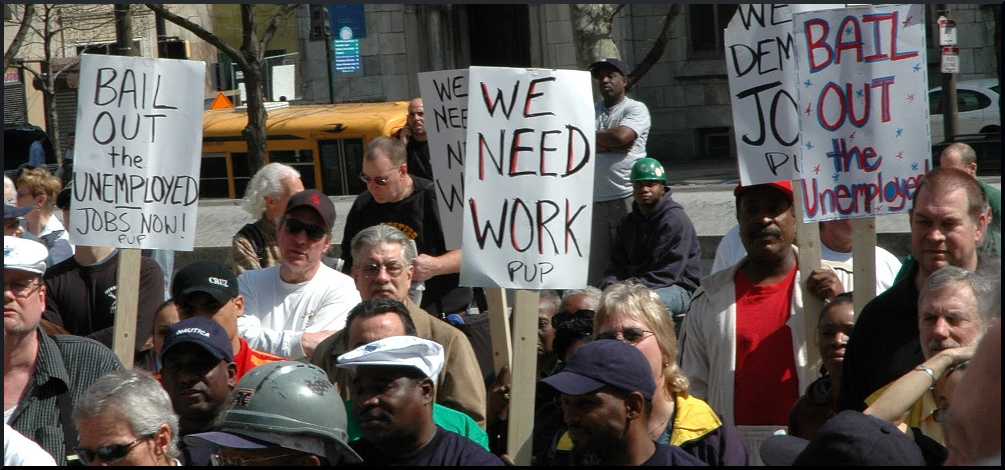Editorial, Workers World Editor, July 1, 2020
The International Monetary Fund issued a warning on June 24 that the global economy faces an even deeper downturn than it previously projected, greater than any since the 1930s Great Depression.
While many economists warned earlier of a cyclical downturn in the world economy, the IMF blamed the current collapse on the coronavirus pandemic alone. The pandemic brought large sectors of the world economy to a stop.
The latest IMF message is that the economic crisis accompanying the pandemic is really big.
And although the IMF refuses to admit it, the evidence is that capitalism and the market-driven economy are completely inadequate for resolving these crises. j
The IMF now predicts a 4.9 percent drop in world production in 2020, with more severe drops for the European Union and the United States, followed by 5.4 percent growth in 2021. In contrast, for China, the IMF predicts 1.0 percent growth in 2020 and 8.2 percent growth in 2021.
The loss of production worldwide over the two years will total $12 trillion, according to the IMF. Annual gross world production is about $90 trillion.
The relative success of China shows the advantage of a centrally organized economy rather than one organized to maximize profits.
Given the extent of the double challenge — the pandemic and the economy — the key question to answer is: What should the working class demand to protect the poorest and most oppressed people in society and to defend workers’ interests?
Demands in the United States
A powerful ideological and accurate point is that a socialist society — motivated by mutual solidarity and striving toward equality of wealth and income — provides the best chance of overcoming the current crises. Capitalism fails.
Without closing the door on the goal of that socialist society, what demands can be raised within the U.S. that can mobilize large sectors of the population for struggle?
In March, Congress quickly passed a so-called stimulus program. The trillions of dollars allocated went mainly to the biggest corporations. Congress aimed some of those funds at small businesses, although the big chains nearly grabbed those funds, too.
A smaller part of the trillions went to the working class: one $1,200 stimulus payment to everyone without a big income, plus an additional $600 per week unemployment insurance payment for the tens of millions of workers destined to lose their jobs — lasting no longer than the end of July.
The unemployment supplement was also supposed to cover people working in the gig economy — workers unfairly treated as “self-employed” — and anyone in the self-employed category, as well as those who lost work because of COVID-19. Some 40 million unemployed workers applied for benefits; many have had a hard time getting them.
This stimulus failed to cover undocumented workers who lost their jobs or became sick, and that failure forced more to work in jobs made unsafe by the virus.
By July 31, at the latest, the added benefits end. These payments were the ventilator keeping the economy alive over the past three months. Without them, tens of millions more people risk losing their homes and going hungry. And since the federal government is seeking to cut the Affordable Care Act, people may also lose medical insurance.
The obvious minimum demands from the working class are that Congress (1) provide additional stimulus payments to the entire working class; (2) extend the supplemental unemployment insurance for at least another year; and (3) extend these payments to all those who have been living and working in the U.S. with or without official papers. Those demands can be amplified to include an adequate and guaranteed income for all.
Workers World Party raised a list of demands in March that are still valid. These include protecting all housing — that is, no evictions or seizure of homes. Also free medical care and testing during the pandemic. And no one should be forced to return to work under dangerous conditions.
Demands throughout the world
Among the imperialist countries of Japan, Western Europe, Canada and Australia, the situation is much like that in the United States — with more social protection and medical care in some countries.
For countries that were colonies of the imperialist countries, or which are still economically dependent, mostly in the Global South, the policies of the IMF itself have contributed to the disaster their people face.
The IMF has forced these governments to curtail social programs, including those providing health care and education, to give priority to repaying debts to the banks based in the imperialist countries.
Thus a minimal global demand is that payments on these debts be cancelled without penalty.
The imperialist countries have pillaged the Global South for centuries. Today they still reap mega-profits through their domination of the world economy, access to data, machine tools, artificial intelligence, scientific development and capital. They set lower prices on goods produced in the Global South, especially on raw materials.
The imperialists owe reparations to their former colonies. They should pay reparations as part of restoring the economies of these countries and the public health systems that have been dismantled by IMF programs.
And, of course, the U.S. capitalist class owes centuries of reparations to Indigenous, Black and Brown people and to the working class as a whole.
Reparations now through income payments! Cancel the debts of all workers and oppressed peoples!
